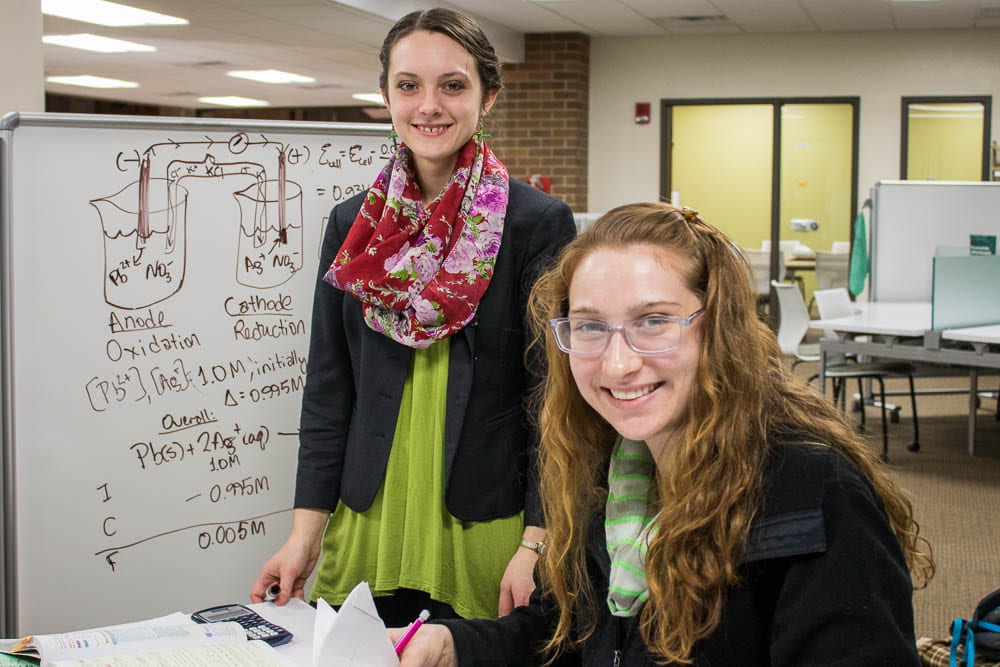Siri: Is going to college worth it?
Navigating the higher education terrain is difficult. Earning a college degree takes a long time. It is expensive. It is complicated. Many ask: Is college even worth it?
The answer is an emphatic “yes.” But in order to give every student a chance to say “yes,” higher education must transform itself for the future by creating partnerships and simultaneously embracing competition. As partnerships are formed, competition must be preserved so that innovation and risk-taking are not dampened. Does this create robust tension across institutions? Absolutely, but a tension that is needed and extremely healthy as we work to prepare students for the workforce and the world.
“Today, we’re competitors and partners at the same time,” says Jeff Rafn, President of Northeast Wisconsin Technical College. “Working with instead of against each other creates the options, flexibility and cost savings the students in our region need. It’s the right thing to do.”
Siri, what is good about college?
A lot. Most, if not all future jobs will require some postsecondary education. In addition, many jobs of the future are unknown. At this very moment, colleges are preparing students for careers that do not even exist today. Higher education, with its great ability to teach important career skills like curiosity, discovery, critical thinking, problem solving and team collaboration is critical in developing future employees, ones who are agile and able to adapt to our constantly changing workplace and world.
And do not forget about the salary potential for those with a college degree. In 2011 U.S. News and World Report* reported, “Those with bachelor’s degrees, no matter the field, earn vastly more ($2.27 million in lifetime earnings) than counterparts with some college ($1.55 million lifetime) or a high school diploma ($1.3 million lifetime), indicating that no matter the level of attainment or the field of study, simply earning a four-year degree is often integral to financial success later in life.”
Siri: Can these partnerships really help more students take the college path?
Yes, particularly if the education transformation is committed to improving time to graduation and reducing costs. Higher education, community and business leaders across Northeast Wisconsin have been working on transforming higher education for years, putting our region well ahead of the curve in Wisconsin and the nation.
The collection of area initiatives is impressive. Several of these one-of-a-kind partnerships are now becoming reality, creating new pathways for student success. The paths are unique and initiated by different partners, but all share a common goal: Making it easier to work toward, and navigate through, a college degree. Programs currently in play: Phuture Phoenix – a UW-Green Bay program that introduces middle school students to college in fifth and eighth grades, planting the seed that college is within reach and encouraging students to dream big about their futures. This 15-year-old program is now producing graduates at UW-Green Bay.
Turbocharge – an intentional effort of the Green Bay Area Public School District, Northeast Wisconsin Technical College and UW-Green Bay to ensure all Green Bay students graduate high school with 15 college credits in hand. At no charge. The class of 2023 (sixth graders today) will be the first to graduate with this valuable jumpstart.
A2B – an initiative by Northeast Wisconsin Educational Resource Alliance (NEW ERA) designed to seamlessly move students from an associate to a bachelor’s degree (A2B) in high-demand programs like engineering and IT. This effort is fueled by the immediate need for regional talent in these careers. A2B prioritizes and expedites students who are pursuing these careers as they move between higher education institutions in Northeast Wisconsin.
Articulation Agreements – these formal agreements between colleges document the transfer policies for specific academic programs or degrees. In recent years, UW-Green Bay has entered into such agreements with associate degree earners at UW-Marinette, UW-Manitowoc and UW-Sheboygan through the Rising Phoenix program. Also at Northeast Wisconsin Technical College (for business analyst, business management, early childhood education, engineering technology and nursing 1-2-1) and Fox Valley Technical College (business administration).
Collaboration – compact between Northeast Wisconsin Technical College and UW-Green Bay, along with the recently announced reorganization of the UW Colleges two-year campuses, intends to connect two- and four-year institutions in ways not previously thought possible.
Collaboration at this level requires a shared mission and a newfound commitment to develop curriculum, share information and data and to transfer credits more seamlessly.

Gateways to Phoenix Success (GPS) – a UW-Green Bay program that teaches first-year students how to “do college” through an intensive year-long experience that provides faculty and peer mentors, small group classes, campus and community involvement and leadership skill training to build confidence and, ultimately, student success.
Siri, where should we turn now?
I’ll let Chancellor Miller answer that.
“We’re optimistic about all of these efforts and others to come and how they will increase the number of students in the region who get a degree and help keep our local economy and communities growing,” notes UW-Green Bay Chancellor Gary Miller.
“But partnerships are only good if they do not dampen innovation and risk-taking.
UW-Green Bay is incredibly excited about the new ideas this tension between collaboration and competition will deliver. While it’s too early to know which initiatives and pathways will be the ultimate game changers, we’re certainly headed in the right direction.” The result: More students arrive at their destination.


